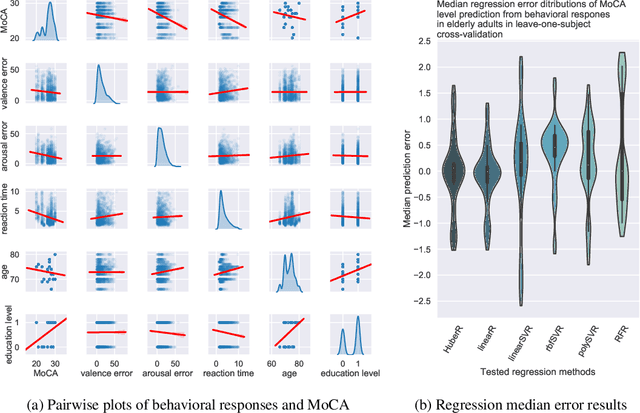Cognitive Assessment Estimation from Behavioral Responses in Emotional Faces Evaluation Task -- AI Regression Approach for Dementia Onset Prediction in Aging Societies
Paper and Code
Nov 25, 2019
We present a practical health-theme machine learning (ML) application concerning `AI for social good' domain for `Producing Good Outcomes' track. In particular, the solution is concerning the problem of a potential elderly adult dementia onset prediction in aging societies. The paper discusses our attempt and encouraging preliminary study results of behavioral responses analysis in a working memory-based emotional evaluation experiment. We focus on the development of digital biomarkers for dementia progress detection and monitoring. We present a behavioral data collection concept for a subsequent AI-based application together with a range of regression encouraging results of Montreal Cognitive Assessment (MoCA) scores in the leave-one-subject-out cross-validation setup. The regressor input variables include experimental subject's emotional valence and arousal recognition responses, as well as reaction times, together with self-reported education levels and ages, obtained from a group of twenty older adults taking part in the reported data collection project. The presented results showcase the potential social benefits of artificial intelligence application for elderly and establish a step forward to develop ML approaches, for the subsequent application of simple behavioral objective testing for dementia onset diagnostics replacing subjective MoCA.
 Add to Chrome
Add to Chrome Add to Firefox
Add to Firefox Add to Edge
Add to Edge